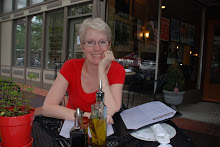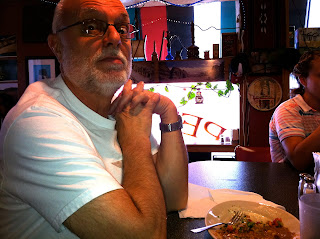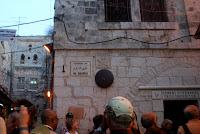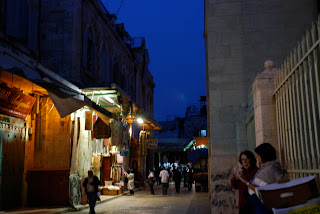Grief isn't fun. It stays deep inside and comes out to surprise. Like a mouse darting across your foot. Like being almost side-swiped by a speeding car.
Leaving Texas last May -- and all our anchors (friends, family, institutions, gatherings) -- felt more like we were on an adventure than what it became once we arrived in Los Angeles: palpable loneliness. I didn't telephone old friends all summer because I felt worse afterwards. I couldn't talk to any new friends because I didn't have any. John and I had spent nearly 41 years in Dallas, and the shared history we had there with others was enough to deepen any conversation and to season it with laughter and unspoken understanding. The grief over the last four months has been a bit crippling.
However, two activities occurred this last week that made me wonder about grief. They were my first choir practice at our new church and a liturgical dance workshop at a Catholic retreat center.
First, choir: I knew that I would miss my friends, the organist, and the conductor (Josh Taylor, the Magnificent) when we started singing last Thursday night at Westwood United Methodist, but when the director had us pull out Paul Basler's Psalm 23 here with this new group of people, I felt a stab of sorrow. Listen, several months ago First Presbyterian Church of Dallas Chancel Choir had ridden on a bus together to Kansas City in order to sing at the American Choral Directors' Association annual meeting. We sang Basler's anthem. The French horn, the friends, the beauty of hard-won skill -- all of it came back to me in a feeling like when you drink a too-hot beverage. My throat felt scalded by the absence of shared history. And wouldn't you know it: we next started singing Stephen Paulus, and I wanted to cry.
But something was different with the grief this time. What was it?
On the way to choir practice, John and I had come to a locked door. I'd seen people in the room upstairs where I'd taught Vacation Bible School, so we climbed the steps and knocked on the door. They had their arms up, a sure sign of liturgical dance if I've ever seen one. I asked what they were doing. When they told me, I excitedly shared a bit of my history of dancing in Greece and England and Chartres Cathedral. They immediately asked me to join them in two days hence to dance at a Sacred Dance Guild workshop in Encino, CA. What? Really? And, blimey, I said yes and asked if I could dance a solo. This all was so unlike what I've been doing lately, I thought I'd lost my head there for a minute.
 On Saturday, in the City of Angels, I put on the dancing vestments from Westwood UMC, asked the four dancers to pray for my injured back, and I stepped on into the sanctuary to recite and dance Psalm 130. I was blown away by the whole experience. The kindness and welcome and delight they offered me in sharing this ancient art form! Their own understnding of liturgical dance! And when the beautiful teacher of the workshop (80-years old, mind you) began to unfold the day using The Prayer of St. Patrick (Rita Connelly singing) I nearly lost it. That gorgeous setting has become my daily meditation for years now. I've taught it to dancers at retreats and in the jail. I held my breath, finding myself at a crossroads. What was I going to do with the points of contact with grief-stricken me? At first, I wanted to bury my feelings or to bolt or both.
On Saturday, in the City of Angels, I put on the dancing vestments from Westwood UMC, asked the four dancers to pray for my injured back, and I stepped on into the sanctuary to recite and dance Psalm 130. I was blown away by the whole experience. The kindness and welcome and delight they offered me in sharing this ancient art form! Their own understnding of liturgical dance! And when the beautiful teacher of the workshop (80-years old, mind you) began to unfold the day using The Prayer of St. Patrick (Rita Connelly singing) I nearly lost it. That gorgeous setting has become my daily meditation for years now. I've taught it to dancers at retreats and in the jail. I held my breath, finding myself at a crossroads. What was I going to do with the points of contact with grief-stricken me? At first, I wanted to bury my feelings or to bolt or both.
And then it came: the deepest feelings of gratitude. I don't know these women except through their exceptional acceptance of me. I don't know the chancel choir. I don't know what the future will hold with either of these art forms. I don't know what friendships will develop. All I know is that with the grief of missing my choir and my dancing, I was surrounded by arms stretching out to me. Not to "hide in the shadow of your wings" of Psalm 17 that I'd felt all summer. No. This was piercing, lively joy, the joy that contains both happiness and grief and balances them in a tender stability.
I know that precious friends and family have been praying for John and me in this major transition. I became the recipient of their grace. What a week. What a grief. What a gratitude. Breathe peace. Breathe dance. Breathe music. Patience attains the goal.























































